"German aggression in September 1939 brought crucial staff changes, revision of existing postulates and programming points. As early as 14 October 1939, a group of OP activists, who in the conspiracy took the name of the Szaniec Group, was established in Warsaw. The Lizard Union had the character of a military organization for which the diversion and successful intelligence (Interview of the West) became a dangerous opponent for the 3rd Reich war device from 1939 to 1942.
The main press body of the pre-war National-Radical Camp was the "Stafeta", which, thanks to its efficient colportage among the capital population, rapidly became the main propaganda tube of young radicals who were eager to brag about their achievements and demands. It was in her writings that Jan Mosdorf justified the division in the national camp and explained the request to establish a fresh formation, claiming that a revolution of reasoning and a revolution of action – this is the way we follow. And although we do not yet have a full answer to all the questions we ask ourselves, we know that our shortcomings are more easy met. The children of the storm period learn faster. Far from political strife, we combine cool thought with hot water.
At the same time, Mosdorf pointed out that the recently established movement of young radicals is not due to Western fashion, stressing that young people are not fascists or Nazis, primarily due to the fact that we are purely Polish, do not request abroad designs. We do not consider ourselves fascists or Nazis either due to the fact that both of these movements have many flaws and even sins that we do not want to bear. These are not patterns we would like to imitate. In addition, which, according to ONR activists, distinguished their environment, is the constantly emphasized unique and extremist nature of the organization. Young radicals frequently organized various manifestations and demonstrations of force, including boycotting of judaic shops, which was peculiarly supported by burghers, as well as peasants who were frequently incapable to compete effectively with capital held by judaic entrepreneurs. Dynamicism in action, military character and extremist methods attracted Warsaw's youth, but at the same time alarmed the power which in July banned the National-Radical Camp.1 The repressions of ONR activists were the origin of another split, but this time inside the Camp. In 1935, as a consequence of disputes between ONR activists, it divided up into 2 competing organizations: ONR “ABC” and the Falanga National-Radical Movement.2
SEE ALSO: Otmar Wawrzkowicz ps. ‘Oles’, Head of Propaganda Division of the Shaniec/OP Group
As in April 1934, ONR “ABC” outside Warsaw gained the most influence in Poznań, where the work was directed by Przemysław Warmiński.3 Instructions for illegal activists already ordered the creation of conspiracy triples and Fridays, headed by a group manager. The focus was mainly on publishing activities and painting slogans on walls and tenement houses. In addition to these external, legal and illegal activities, however, attempts have been made to penetrate legally active youth and working environments with their own programme. specified attempts were made in Poznań, Vilnius and Łowicz.4 The main effort was to work in academia, which allowed for the 1920 academic resolution, limited in 1933, and giving the right to establish and operate by university associations, and not so far by 3 types, i.e.: university, inter-universal, and nationwide.5 The resolution of 1933 resulted in the decision to penetrate and operate in legal organizations specified as corporations, readably or “brothers”6. The period of illegal activity ended in the 1936/37 academic year, erstwhile it was registered at Warsaw universities and the University of Poznań and Vilnius, legal academic organizations at ONR “ABC”.7
An crucial component of the political and social program, in addition to the issue of judaic minority, was the issue of the German number inhabiting the territory of the Second Polish Republic and the German threat itself. The roots of these demands must be sought at the end of the 19th century when The political trend called “Western thought” has developed. It was based on 3 basic elements, which placed peculiar emphasis on the economical and population aspect of Western lands, which were to become 1 of the most crucial industrial districts of Poland in the future. Another crucial point was to argue the German plan "Drag nach Osten", as a physical threat and reorientation of Western politics, which should be peculiarly oriented towards acquiring these very lands.8 Young radicals, while updating the above demands, claimed that a German number with objectives contrary to the Polish state's rations was incapable to assimilate, so it should be deprived of political rights.9 In connection with the abroad policy pursued by the government towards Germany, a sanatorium camp was peculiarly stressed and stigmatized, which they felt had the Philogerman tendencies, which formed the basis of the Treaty of Non-Aggression signed between Berlin and Warsaw.10 At the earliest, the views of the energyists at the time may be summed up by the slogan “Germany off for Oder!”
SEE ALSO: Tadeusz Ungar – omnipolak fighting for General Franco in the civilian War
Also the National-Radical Camp press took over anti-German postulates and traditionally anti-German attitude, which characterized the national camp since its inception.11 According to nationalists, the German population in the territory of the Second Republic was to be treated in the same way as Poles in the territory of the Weimar Republic. There were no illusions about the future intentions of the Germans, who thought they were pursuing inevitable war.12 However, what peculiarly aroused the hostility of the Polish national camp to Nazi Germany was a subject of racism which was powerfully exposed in national-socialist doctrine. The racial issue was considered by Polish nationalists as a variety of materialism, which was incompatible with the principles of Christian nationalism, and thus hostile to the Polish people.13 Young radicals believed that the peculiar threat to Poland was the ideological flood which threatened us from Germany. According to Jan Korolc14 The threat was real due to the fact that with negative effect it has already appeared respective times in our history. In his article on the paper “Sztafeta” he warned that Poland should not become passive recipient of German cultural production, due to the fact that the ideological flood is an avant-garde military conquest.15 He besides felt that this threat could be resisted by the greatness of his own creation, so as not to become German thought hinterland.16 The thought of national-socialism itself was seen as a statolatria based on a story of race and blood, in an inseparable appeal to German mythology. According to radicals, the roots of the pagan strategy of the 3rd Reich should be sought in the works of Rosenberg, Ludendorff and Sombart, who are considered the creators of German theories about the superiority of the Aryan race, or the explanation of the Lebensraum. Furthermore, Rosenberg's strong influence on his thesis is the occult beliefs, which became the basis of inhuman German experiments utilized mainly on concentration camps prisoners. 1 of the activists of ONR Stanisław Grzelecki, in his article "National Radicalism against the Background of Modern Nationalistic Doctrines" distinguished 7 characteristics of national-socialism:
- The designation of the breed as a reservoir of the highest values, and of all races - the Norse race as the most perfect.
- Basing the worldview on “the story of race” and “the story of blood”.
- Recognition as the highest ideals of honor and freedom.
- The national strategy is based on the rule of leadership (Fuehrerprinzip).
- Recognition of the unity of ideas and leaders.
- Recognising the state as a measure, not an objective.
- Reference to traditions of pagan Germanism.17
These features were not compatible with the national-radical ONR program, which primarily recognized the nation as the highest value, and the nation's welfare as the highest temporal goal. It was besides unacceptable to reconcile with Polish Christian nationalism with a request for a state which for Polish radicals was just a form of organization of a nation based on Catholic ethics. A year later, Grzelecki in the same paper condemned the rule of leadership, which he called das Führerprinzip.
In the national-radical press, the actions of German national-socialism were besides followed abroad. The number 54 "Stage", which was released on June 11, 1934, reported the bombings organized by the Nazis in Austria. The subject of the assassinations in Austria and the conflict of German national socialists with the government of Engelbert Dollfuss was inactive discussed on respective occasions in the newspaper. On the another hand, number 39, which appeared on June 3, 1934, was alarmed about the disturbing situation prevailing in the Free City of Gdańsk, where national-socialist militias increasingly aggressively and boldly began to act against the judaic community. According to the “Stage” peculiar radicalism in these postulates was the Prussian state councillor, Forester.
SEE ALSO: Wojciech Lubieborski: The basis of the national view of the world
On the eve of the war, in the June edition of the two-week social-economic magazine, “Alarmary Body of the Polish-Organism Warsaw”, a associate of the Polish Organization, Wiktor Martini recalled the centuries-old and possessive politics of the German people, who for centuries seized Slavic lands, murdering its inhabitants and casting them colonists. According to Martini The mission of the first generation of independent Poland is to reconstruct the western borders of the Polish hub and to implement the political concepts of Lives I and Bolesław Chrobry.18 In the text we find besides the historical justification for the Polishness of western lands, including especially Pomerania and the lands located on the river Odra, which is to become the border Reborn Poland. Given the year 1939 erstwhile this text was written, Martini's words By saber and bayonet, we will regulate neighbourly relations with Germany. Today, erstwhile Germany borders us from 3 sides, Poland more than always must be ready for an armed trial with German imperialism, They sound prophetic. On September 2, 1939, 1 of the newspapers edited by ONR - "ABC regular News" issued a call to members of the National extremist Camp “THE ONR calls on all its members and sympathizers to fulfil their work to defend their homeland and to submit unreservedly to the orders of military and civilian authorities, as an example of valor, perseverance and discipline.”19
German aggression in September 1939 brought crucial staff changes, revision of existing postulates and programming points to the National extremist Camp/Polish Organization. As early as 14 October 1939, a group of OP activists, who in the conspiracy took the name of the Szaniec Group, was established in Warsaw.20 The Lizard Union had the character of a military organization for which the diversion and successful intelligence (Interview of the West) became a dangerous opponent for the 3rd Reich's war device from 1939 to 1942.21 The political and managerial sovereignty over the JSC was exercised by the Shaniec Group (OP), for which the top challenge of the first business period was the restoration of the governing and territorial structures. The deficiencies in the cast of executive positions were caused by losses associated with war activities, as well as later panic of the German and russian occupier. They were peculiarly visible at the level of the management level of average and advanced pre-war ONR/OP activists. During the first period of the war, the head of the OP Executive Committee Viktor Martini went into russian captivity.22 A akin destiny was met by the president of the Political Committee “A” Jan Jodzewicz, who got into the hands of the Germans and was imprisoned in the olag.23 Another serious blow to the environment of the Shaniec Group was the failure of Przemysław Warmiński, 1 of the leading OP activists and leaders of the national camp from Wielkopolska. Among those arrested or imprisoned were besides managers and activists of ONR School Groups, editors of writings and activists of higher levels of OP specified as: Stefan Bławdziewicz, met. Henryk Suchodolski, Zygmunt Judycki, Wojciech Dłużewski, Edward Mustalski, or Jan Wyszyński.24 Since 1940 Mieczysław Harusewicz, the leading activist of the Political Committee “A” of the National-Radical Camp, has besides been cut off from the country.25 A individual able to consolidate the OP environment was Jan Mosdorf, who so far distanced himself from the current policy. At the request of Stanisław Piasecki, he undertook cooperation with the propaganda department of the National Party, where he took over as the head of the Central Department of Propaganda of the Main Board of the “Quarter”. At the same time, Mosdorf undertook talks with his colleagues in the ONR/ABC environment, hoping to combine the divided pre-war national movement. Mosdorf's further conspiracy activity interrupted his arrest by the Germans in June 1940. It was first placed in Pawiak and then transported to Auschwitz Birkenau Concentration Camp.26
As a consequence of staff shortages, lower-ranking activists took positions at higher levels of OP hierarchy. The main request for candidates was to be linked to pre-war OP structures (at least level ‘C’) or social connections with OP activists. In the first period of operation, the newest activists specified as Klemens Remer, who became the head of the Political Committee (level A) or Janusz Regulski, were promoted to the highest organizational levels.27 Direct decision-making centre became a reconstructed “National Order”, whose first president was Otmar Wawrzkowicz28, later head of propaganda apparatus (1940- 1943). The composition of the Political Committee during the first months of the war was presented as follows: Władysław Brodowski, Tadeusz Fabiani, Antoni Goerne, Kazimierz Gluziński, Tadeusz Gluziński, Aleksander Heinrich, Jan Harusewicz, Jerzy Iłlakowicz, Jan Korolec, Witold Kozłowski, Władysław Marcinkowski, Stefan Nowicki, Tadeusz Salski, Stefan Słanin, Bolesław Sobociński, Włodzimierz Sylwestrowicz, Tadeusz Todleben, Otmar Wawrzkowicz.29 However, the repressions that met the OP activists were so severe that by the end of the war many posts had remained vaking due to continuous personnel losses.30
The Shaniec/OP group aimed negatively at underground organizations created under the patronage of the Sanitation Camp activists began talks at the beginning of the war with activists of the National Party, whose aim was to combine efforts of both organizations and make uniform structures of the national underground. Jan Pojaryski and Jan Jodzewicz, Jan Korolec, were liable for the talks on the part of the Shaniec/OP Group. SN was represented by members of ZG SN Zygmunt Berezowski, Mieczysław Trajdos and Roman Rybarski. Despite the deficiency of a strict and bilateral agreement, a decision was made to establish cooperation in the military field, namely the establishment of a military and publishing organisation aimed at publishing a paper common to both organisations called “Szaniec”. The name of the paper was taken over from a magazine issued by military communities in the years 1927-1930 and aimed negatively at sanitation governments. Mieczysław Harusewicz was the first manager of the “Szaniec”, where the first numbers were printed in the flat at 40 Mokotowska Street.31 In December 1939, Wiktor Butler, Leon Najmdorzki and Zygmunt Przygodzicki, who were associated with the National Party's propaganda department, joined the editorial board of “Szaniec”. However, the cooperation did not last long. Already in the early 1940s, she was broken up. The reason may have been for the OP/ONR activists to take control of the “Shanan” and to make it an exclusive press body for the environment. However, it is hard to find real reasons for breaking cooperation, due to the fact that both parties accused each another of behind-the-clock games in both the Polish and the emigration press. There was most likely a dispute that had already occurred before the war and which was ambitious and about the direction of action which
from the organisation has the right to lead, fill management positions and dictate the programme direction. Despite this dissonance, “Szaniec” continued to appear, but from now on as an exclusive OP body.
What distinguished the environment of the “Szaniec” Group was the peculiar focus of organizational effort on the construction of the group's propaganda apparatus. In the beginning of 1940, a mill of its own was launched, which was called the “Szaniec” Publishing Works. In addition to this paper, propaganda besides produced another conspiracy titles, as well as brochures and printed publications under the name “The Library of the Sun”. The Group's widely understood publishing activities were aimed at publishing the central and field press, leaflets, posters, and bricks from which income was allocated to the activities of the National Armed Forces.32 The propaganda pion was powered by known activists specified as Lech Karol Neyman33Antoni Goerne, Leszek the Prophet, or Stanisław Kashnica. The environment associated with the “Szaniec” Publishing Works, as in the pre-war years, was a narrow group of people who were limited to proven activists who gained their experience during the period of illegal activity of ONR before the war.
Bartosz Tomczak
1 The pretext was assassination of Minister of Interior Bronisław Pieracki by Ukrainian nationalists from the OUN organization. Meanwhile, ONR was blamed for the assassination, which was to be a reaction for the repression of this formation. As an argument for this thesis was provided by Jan Mosdorf himself, who called the minister Pieracki earlier the day, asking for a conversation, stated that "tomorrow may be besides late." The repression did not embrace Mosdorf, who thanks to being hidden avoided arrest, which in turn was treated by his organizational colleagues as treason. After disclosure, he remained aloof without engaging in illegal activities at the time ONR.
2 ONR "ABC" took its name from the Endecki diary taken over by Tadeusz Gluziński. It was headed by Henry Rossman. On the another hand, RNR Falanga led by Bolesław Piasecki went to the chief organization, based on the authoritate of its leader.
3 Przemysław Warmiński - born 14 March 1908 in Bydgoszcz. He won 2 Polish titles in tennis, runner-up in a single game, and in a double. As an AZS player Poznań won the Polish Championship in hockey. He studied law. He was an activist of the Baltia Academic Corporation. As a associate of the All-Polish Youth and ONR, he was 1 of the top leaders of these organizations in Wielkopolska. He's withMobilized in September 1939, to the rank of lieutenant. He died defending Warsaw.
4 The president Activities and socio-political thought of the ABC National and extremist Camp 1934-1939, Conservative Monarchist Club, 2009, pp. 47-48.
5Ibidp. 49.
6 Fraternity Help, popularly referred to as “brothers”, was Student self-help organization, which has been created since the mid-19th century at Polish universities.
7 The president Activities and socio-political thought of ABC National-Racial Camp 1934- 1939, The Conservative Monarchist Club, 2009, p. 50.
8Red. R. Sierchula, National Camp in the Face of 2 Totalitarians, Warsaw 2010, p. 34.
9 The slogans of the fight against the German threat were, for example, present in the youth press in 1931, erstwhile in “Szczerbc”, the body of the Young Camp Movement of large Poland, an article was published entitled “And we request a revision of borders”.
10 In 1934, Joseph Goebbels, who came to Poland to give a lecture on contemporary ideologies, was informed about the visit. The same year number 59 on the front page gave the title- "Goebbels in Warsaw on the speaker", the content was unfortunately censored.
11 It is worth to mention the words of the creator of the Polish national camp, Roman Dmowski, as quoted in his book “Man, Pole, Friend” by Isabella Wolikowska- [...]I worked my full life against the Germans due to the fact that I wanted Poland to live, and German politics set a goal to destruct it. However, he would be incorrect to think that I am guided by any blind hatred of the Germans, or that I am incapable of a just judgement of the value of the German people. Many features of the mentality and character of German are opposed to my Polish psyche, a full scope of another nations are closer to me spiritually, but I have deep respect for the individuality of all nation and I am far from condemning everything that is abroad to me. I would be happy if relations between us and Germany could be healthy neighbourly relations, based on common respect, which would let for cooperation where necessary. Unfortunately, I'm afraid it's going to be a long time before specified relations happen. To the depths of unhealthy psychology of the German people in relation to Poland for a long time will inactive be a origin of relentless conflict and failure of strength, both Polish and German, which could be utilized for a large civilizational work of both nations.
12 Already in 1910 1 of the creators of Polish nationalism- Jan Ludwik Popławski, informing against German cultural and physical expansionism wrote that [...] so not with Prussia only, but with Germany whole, not with individual parties, but with the full German society we must fight a fight in which the stronger side does not dress in means, and the weaker side is bound even in its legal activity, fierce fight, death and life. He besides warned against falling into lethargy and putting to sleep the phrases about Germany's failure to implement Germanization policy. According to Popławski in the beginning of the 20th century, many Polish politicians believed in specified a communicative that was told to us by the Germans.
13The national-radical movement rejects the explanation of race as based on material conditions, and thus does not conform to the spiritualist concept of the nation and Catholic religion. A associate of a nation is considered to be 1 who admits his nationality, who states that there is simply a strong, inseparable spiritual relation between him and the remainder of the nation, and whom most of the members of the nation unreservedly admits to his group, in: S. Grzelecki, National Radicalism against the Background of Modern Nationalistic Doctrines, "New Deal. Political Monthly”, 1938, No. 4, pp. 7-9.
14 Jan Korolec- born 26 August 1902 in Poltava. Volunteer in the Polish-Bolshevik War. In the 1920s he studied at The Faculty of doctrine and Humanities, and later at the Faculty of Law of the University of Warsaw. During his studies, he was a associate of the All-Polish Youth and later the Camp of large Poland. In 1934 he joined ONR, becoming later the only major publicist of magazines specified as fresh Deal, “ABC”, or “Easy from the Bridge”. During the business he was arrested and imprisoned in Pawiak, from where he was taken to the concentration camp, where he was murdered on July 30, 1941.
15 J. Korolec, Searching for Your Own Ways, "New Deal. Political Monthly", 1935, No. 1, pp. 1-2.
16 Ibid., pp. 1-2.
17 S. Grzelecki, National radicalism against the background of modern nationalistic doctrines, "New Deal. Political Monthly", 1938, No. 4, pp. 7-9.
18 W. Martini, What We Must Remember, “Alarm. Body of the Polish-District Warsaw Union”, 1939, No. 7, p. 1.
19 W. J. Muszyński, The spirit of the young. Polish Organization and National extremist Camp from 1934 to 1944. From student revolt to independency conspiracy, Warsaw 2011, p. 404.
20 The Polish organization in the conspiracy utilizing the name “Szaniec Group” practically gave up the first name – the National extremist Camp, which over time was increasingly used. And the name of the Lizard Union referred to the armed union nobles from Chełmina land founded to fight the Teutonic Order. Colonel Tadeusz Boguszewski described the adoption of a fresh name- [...] First, for tactical reasons, a extremist expression was released, then for tactical reasons as well as for changes in assumptions and slogans. [...] A very crucial argument in the omission of the ONR title was the tendency of a number of smaller para-military organizations to integrate into the ranks of structures that were more many and organizational. The word ONR against the backdrop of the Germans, alternatively repellent. The Shaniec Group with ideology adapted to the current state of affairs did not rise any doubts or objections. [...] Thus, for any Shaniec Group was just an external facade for the old ONR, for others she was the heir of ONR, who rejected the Ideowa Declaration of 1934 and developed a new, updated version of the perfect of future Poland. [...] An excellent part of the ZJ and NSZ-ZJ soldiers have accepted that the Shaniec Group is an organization completely fresh and completely independent. Many of them had no thought about ONR and that part of the political leadership came from the National and extremist Camp. In addition, an interesting assessment of NSZ branches included a Gestapo study from late 1944: The large political goal of the National Camp, including the NSZ, is to fight for Poland's independence, with the following issues leading up to:1. winning East Prussia for Poland,2. Taking lands to Oder and Nysa. [...] The NSZ developed their military organization almost all over the territory of the erstwhile Polish state, but especially concentrated on the left bank of the Vistula River. Their battalions and independent companies were the most crucial insurgent forces alongside the AK. The NSZ's ranks consist of soldiers trained on a clear, idealistic basis, who either acted in 1 of the national groups before the war, or politically and militantly proved themselves during the September 1939 tragedy or in an underground fight against Germany. [in:] O NSZ, https://www.nsz.com.pl/index.php/o-nsz, 01.05.2019.
21The General Governorate and the German Reich were covered by a network of intelligence institutions. Among the most active intelligence centres were Gdynia, Starogard Gdańsk, Poznań or Bydgoszcz. Intelligence materials collected by the Interview “West” of the ZJ-NSZ included information on military, economy, or news on civilians. Among the top successes of the ZJ Intelligence is the location of the "Tirpitz" battleship, a secret rocket investigation centre, or the acquisition of materials concerning a number of military operations of the German Army command. To fight the ZJtu interviewers, the Germans appointed a peculiar unit of Sonderkommando ZJ.
22 Viktor Martini- born 2 VIII 1910 in Zagórze. During his studies he worked in the ranks of the All-Polish Youthand then Camp of large Poland. Since its beginning, ONR has been among the most crucial activists. During the split, he sided with ONR "ABC". He was part of the National Order and the Political Committee "A". In February 1939, he was mobilized into the army, was assigned to the "Sejny" KOP Baon. During the war, he participated in the fighting against the German army and then with the entering Red Army. Taken prisoner by Soviets, he was placed in a camp in Kozielsk. He was murdered in Katyn. The German authorities did not know of his death they sought him until 1942 due to suspicions of cooperation with the conspiratorial Shaniec Group.
23 Due to the competence and scope of the mandate, the deficiency of "A" level activists affected the first months of operation of the OP environment. The pre-war “A” level structures were to be transferred to the reality of the wartime conspiracy.
24 W. J. Muszyński, The spirit of the young. Polish Organization and National extremist Camp from 1934 to 1944. From student revolt to independency conspiracy, Warsaw 2011, p. 208.
25 Mieczysław Harusewicz- born September 28, 1899 in Ostrów Mazowiecki. Defender of Lviv, associate in the 1920 War. After graduating, as an engineer he worked in Gdynia and Stalowa Wola, and served as a wellness inspector of the capital city of Warsaw. active in the activities of the Camp of large Poland and the National Party, in 1934 he joins the established ONR, forming part of the Political Committee. It engages in conspiracy, but in the spring of 1940 it leaves west to make contact with the emigration government, and to legalize ONR on refugees. After the war ended, he ran his own business in the west. He was active in national and publishing work. He returned to Poland in June 1989. He died. February 18, 1991.
26 M. Kotas, Jan Mosdorf. Philosopher, ideologist, politician, Krzeszowice 2007, pp. 70-71.
27 W. J. Muszyński, The spirit of the young. Polish Organization and National extremist Camp from 1934 to 1944. From student revolt to independency conspiracy, Warsaw 2011, p. 209. Later on, the ranks of OP were joined by Fr Jan Salamuch, Witold Bayer, Stanisław Kashnica, Lech Karol Neyman, Eugeniusz Gębski and Mieczysław Paszkiewicz.
28 Otmar Wawrzkowicz- born in 1910. In youth she taught economics at the Warsaw School of Economics. At ONR he was a associate of the Polish Organization at level ‘A’, liable for activities in the Workers' Area. In the conspiracy, 1 of the most crucial figures in the Sun Group environment. At a later time he was head of II (Interview) NSZ-ZJ. He left the country in 1944. In 1945 he reached the Świętokrzyska NSZ Brigade. After the war, he left for Montreal, where he became seriously ill. He committed suicide in 1951.
29 W. J. Muszyński, The spirit of the young. Polish Organization and National extremist Camp from 1934 to 1944. From student revolt to independency conspiracy, Warsaw 2011, p. 210.
30 The difficulties are mentioned, for example, by Władysław Marcinkowski, ps. “Jaxa” who, upon his arrival in Warsaw in 1939, noted that most of his colleagues in the organization were at the age of military service active in fighting against Germans and Soviets- [...] Many died, many went into captivity. There were those who landed in Katyn, like Victor Martini.
31 W. J. Muszyński, The spirit of the young. Polish Organization and National extremist Camp from 1934 to 1944. From student revolt to independency conspiracy, Warsaw 2011, p. 211.
32 The bricks of different nominal value were 1 of the sources of backing for the NSZ, which did not receive money from Western Allies for their business.
33 Lech Karol Neyman- born February 7, 1908 in Poznań. ATwo-kat, a reserve officer of the Polish Army, an activist of the Association of Academic Youth of All Poland and the National-Radical Camp. He participated in the 1939 defensive war. In the conspiracy, he became active with the “Szaniec” Group. Author of the concept of returning the Polish western border to the line of the rivers Odra and Nysa Lusatia. Arrested on February 15, 1947 by Homeland Security, after a fake trial he was murdered by communists 12 May 1948.


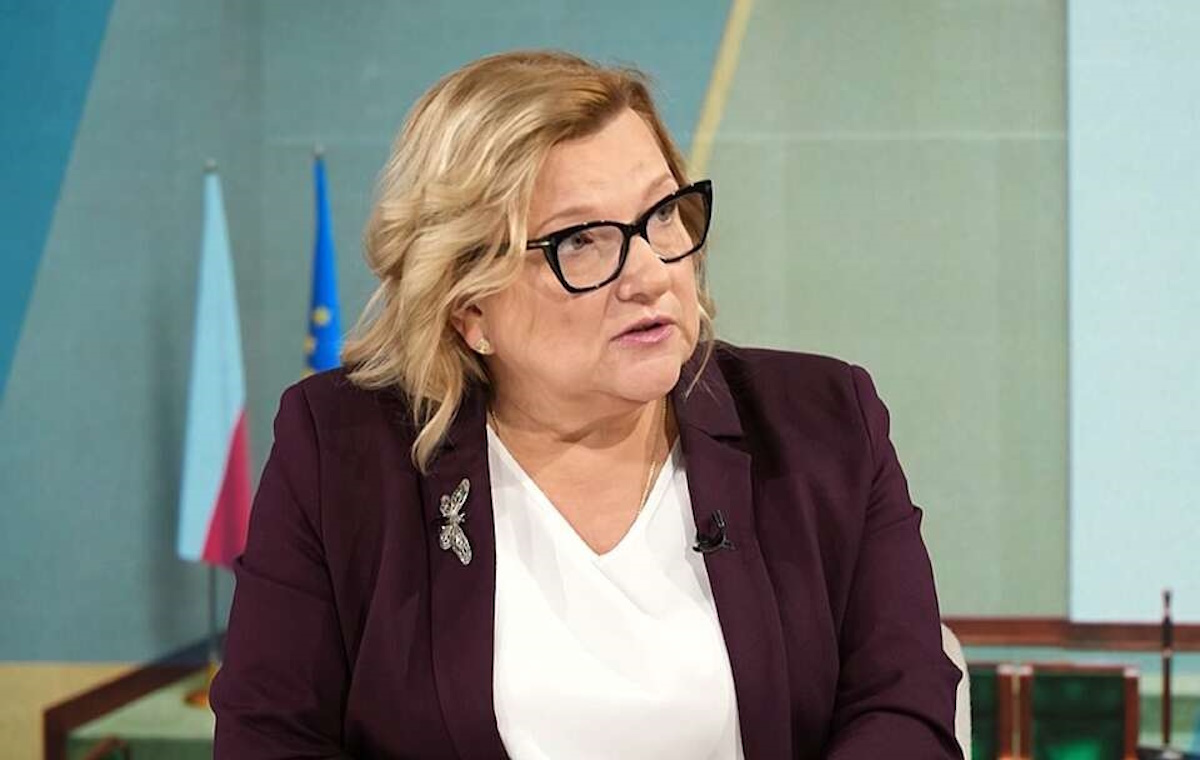
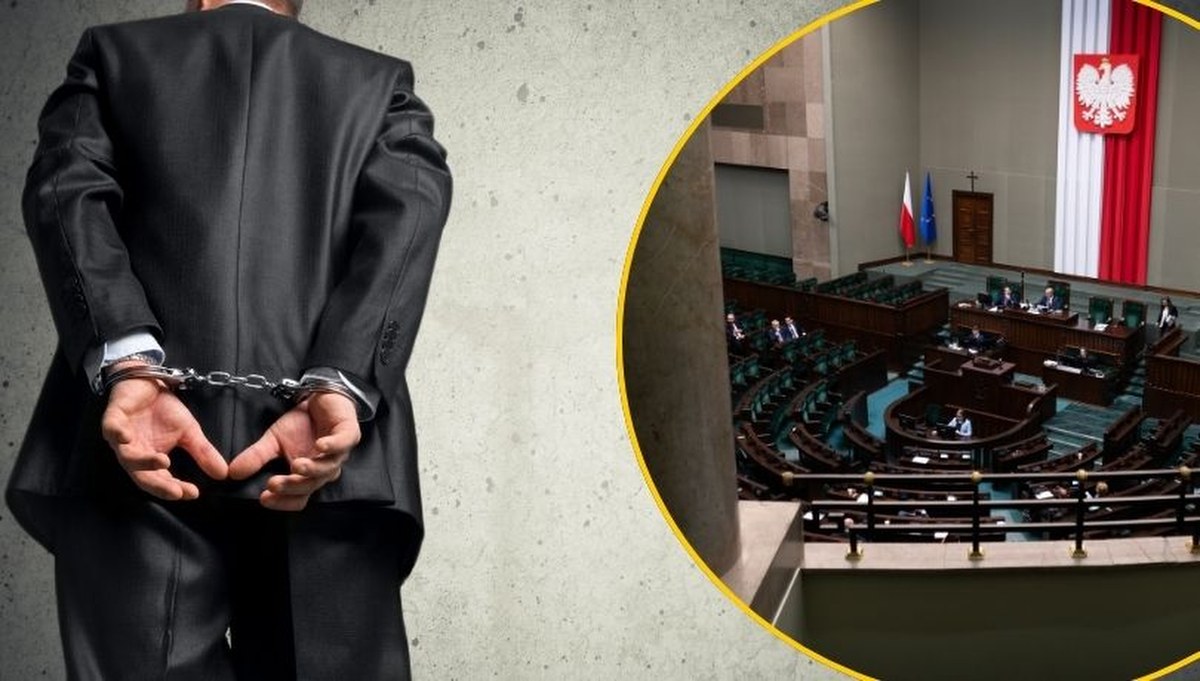
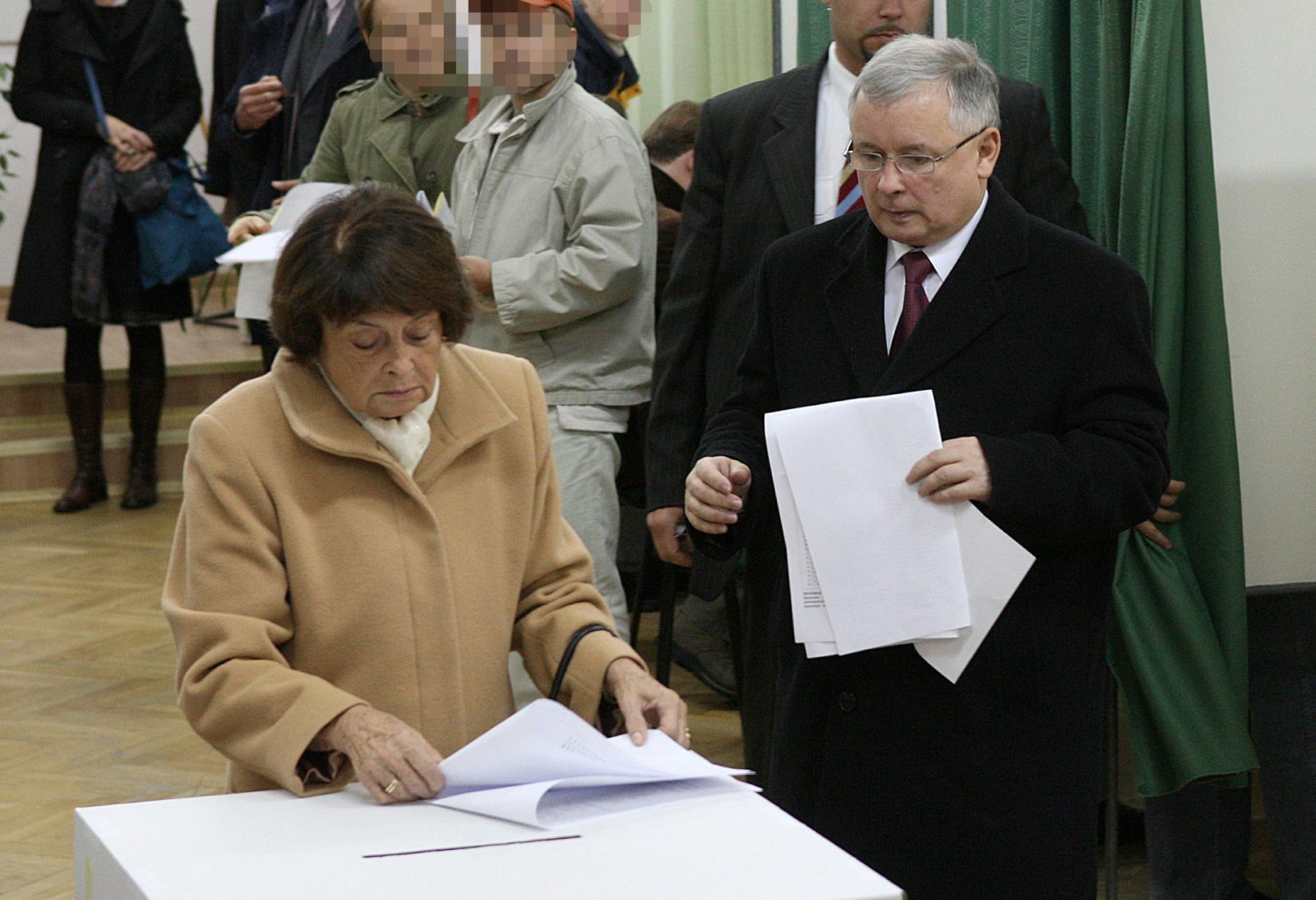
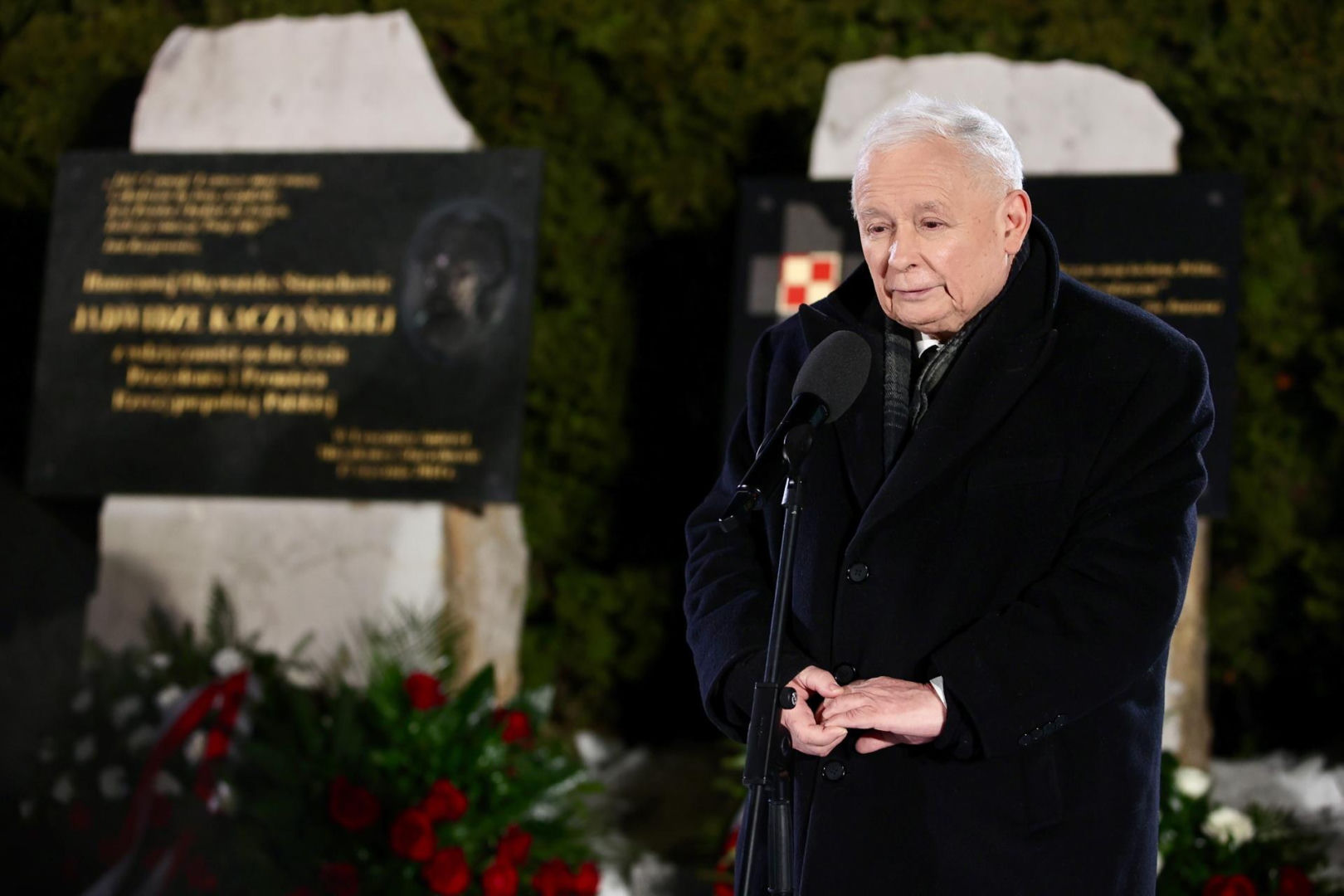
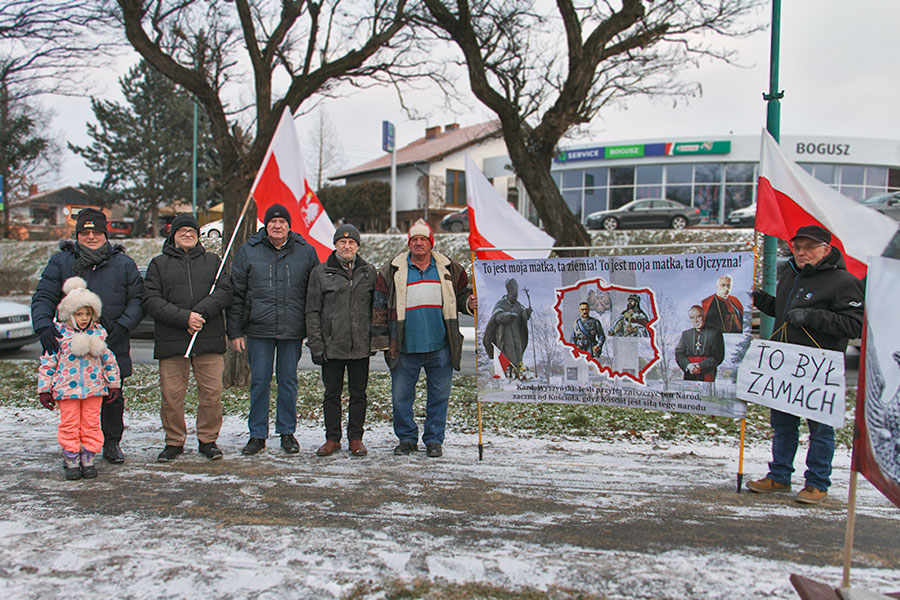
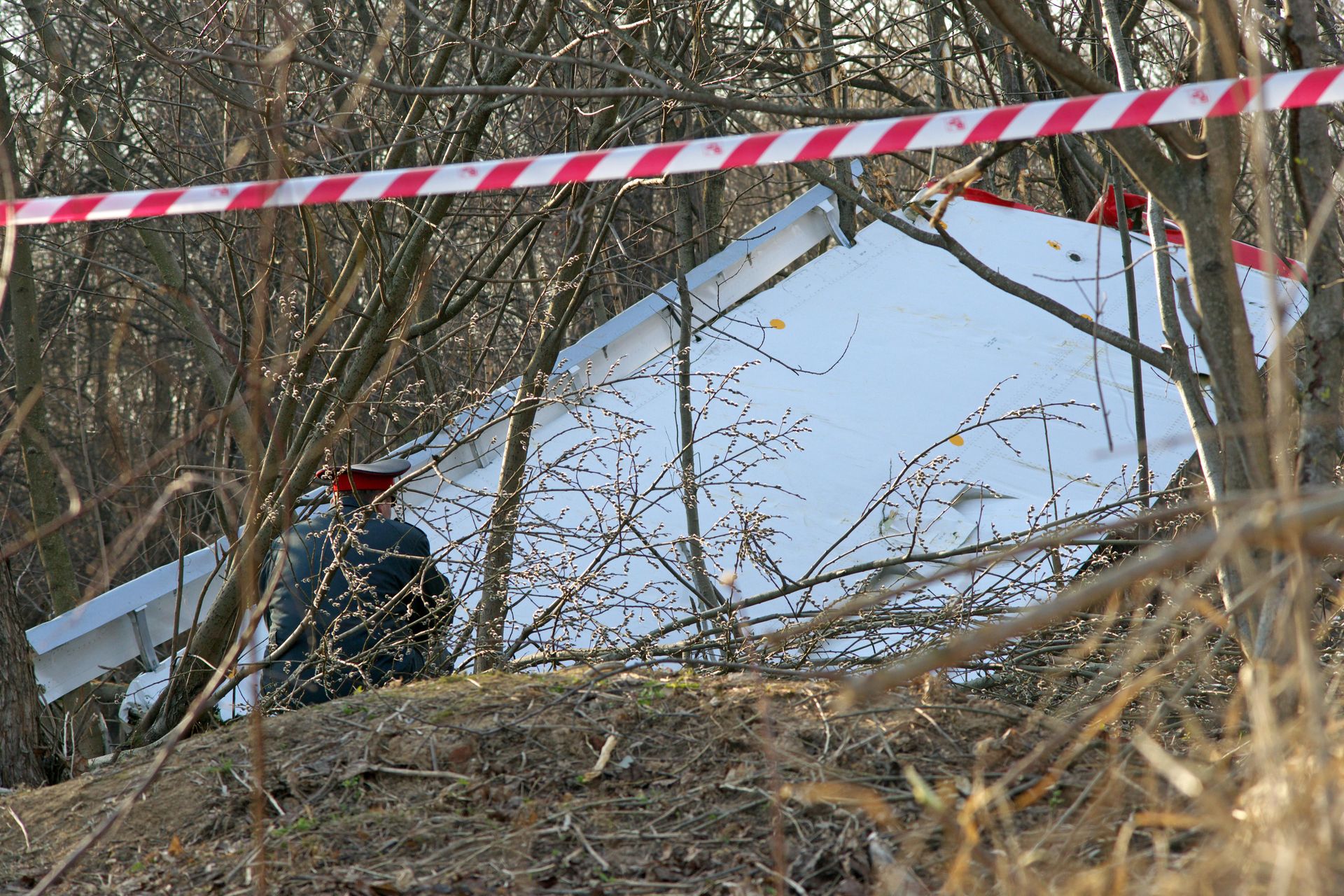






![Wojsko irańskie jest gotowe na wojnę totalną [reżim ajatollahów]](https://wcn-media.s3.us-west-004.backblazeb2.com/2026/01/yeb8RbSd-QgnfDom9-Iran-1.jpg)
